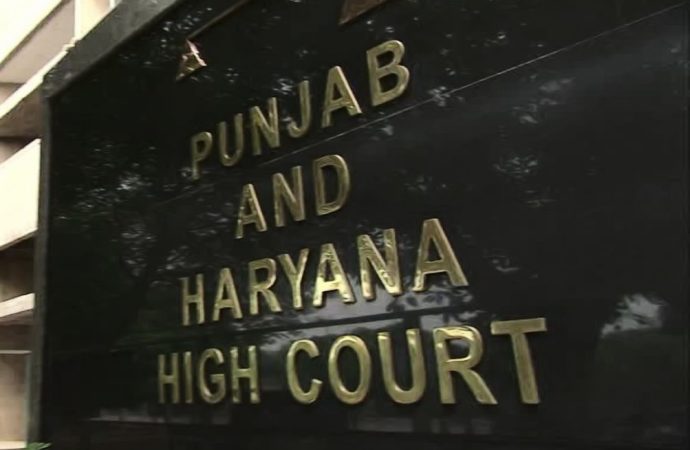The Punjab and Haryana High Court has confirmed the dismissal of a former Punjab Police constable, who was expelled from service in 1995 for alleged connections with extremist groups. The court dismissed the appeal filed by Mann Singh, who had contested his removal on grounds of procedural lapses, noting that his conduct was “not above
The Punjab and Haryana High Court has confirmed the dismissal of a former Punjab Police constable, who was expelled from service in 1995 for alleged connections with extremist groups. The court dismissed the appeal filed by Mann Singh, who had contested his removal on grounds of procedural lapses, noting that his conduct was “not above the board” and citing his direct involvement with extremists during the period when Punjab was grappling with terrorism.
Court’s Ruling
Justice Jagmohan Bansal, in his judgment, upheld the original decision to dismiss the petitioner, emphasizing that nearly three decades had passed since the dismissal and that there was no reason to overturn the decision. He stated, “The conduct of the petitioner was not above the board, and after almost 30 years, the court sees no reason to interfere with the findings recorded by different authorities under the Punjab Police Act and Rules.”
Background of the Case
The case stems from a 1999 writ petition filed by Mann Singh, a constable who was dismissed from service in 1995. The dismissal followed intelligence reports that linked Singh to Babbar Khalsa, an extremist group active in the region during the 1980s and 1990s. Singh’s counsel argued that his dismissal was unlawful, as it occurred without an inquiry, violating the provisions of Rule 16.24 of the Punjab Police Rules, 1934, and Article 311(2) of the Indian Constitution, which mandates due process for disciplinary actions against government employees.
Punjab Government’s Defense
The Punjab Government defended the dismissal, explaining that during the years 1985 to 1995, the state was in the midst of intense terrorism. Given the circumstances, an inquiry was not feasible, as witnesses were afraid to testify due to fear and coercion. Intelligence reports from the State of West Bengal and the Government of India pointed to Singh’s connections with extremists, leading to his immediate dismissal.
Court’s Analysis
The High Court referred to the Supreme Court’s ruling in Central Council for Research in Ayurvedic Sciences vs Bikartan Das (2023), clarifying the principles governing writ petitions. The court emphasized that it is not an appellate body and does not reweigh evidence presented in lower tribunals. However, the court affirmed that errors of law apparent on the record could be corrected, while errors of fact could not.
The court also noted that while the dismissal order did not initially disclose the intelligence that justified skipping the inquiry, the state counsel later produced intelligence reports showing Singh’s misuse of his official position. These reports revealed that Singh had been detained by Kolkata Police, carrying his official firearm without authorization and pretending to be a gunman for a political figure.
Conclusion
In light of the evidence and the circumstances surrounding the case, the Punjab & Haryana High Court rejected Mann Singh’s petition, confirming the legality of his dismissal. The court underscored that the dismissal was based on solid intelligence reports and proper legal grounds, upholding the integrity of the Punjab Police’s disciplinary actions during a turbulent period in the state’s history.
This ruling reinforces the importance of security and integrity within the police force, especially during times of national crisis.



















Leave a Comment
Your email address will not be published. Required fields are marked with *